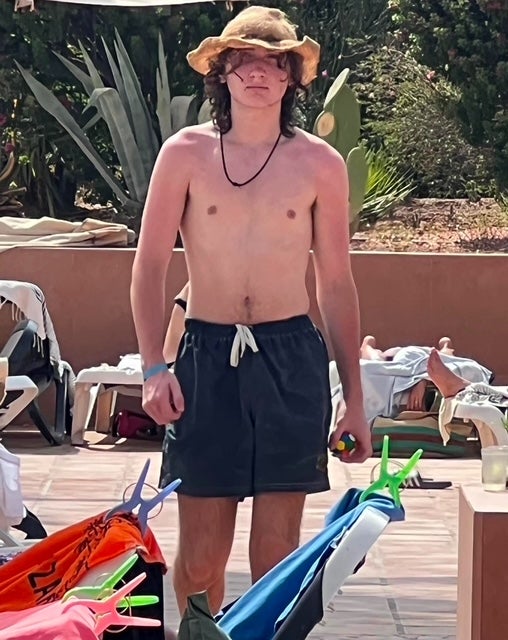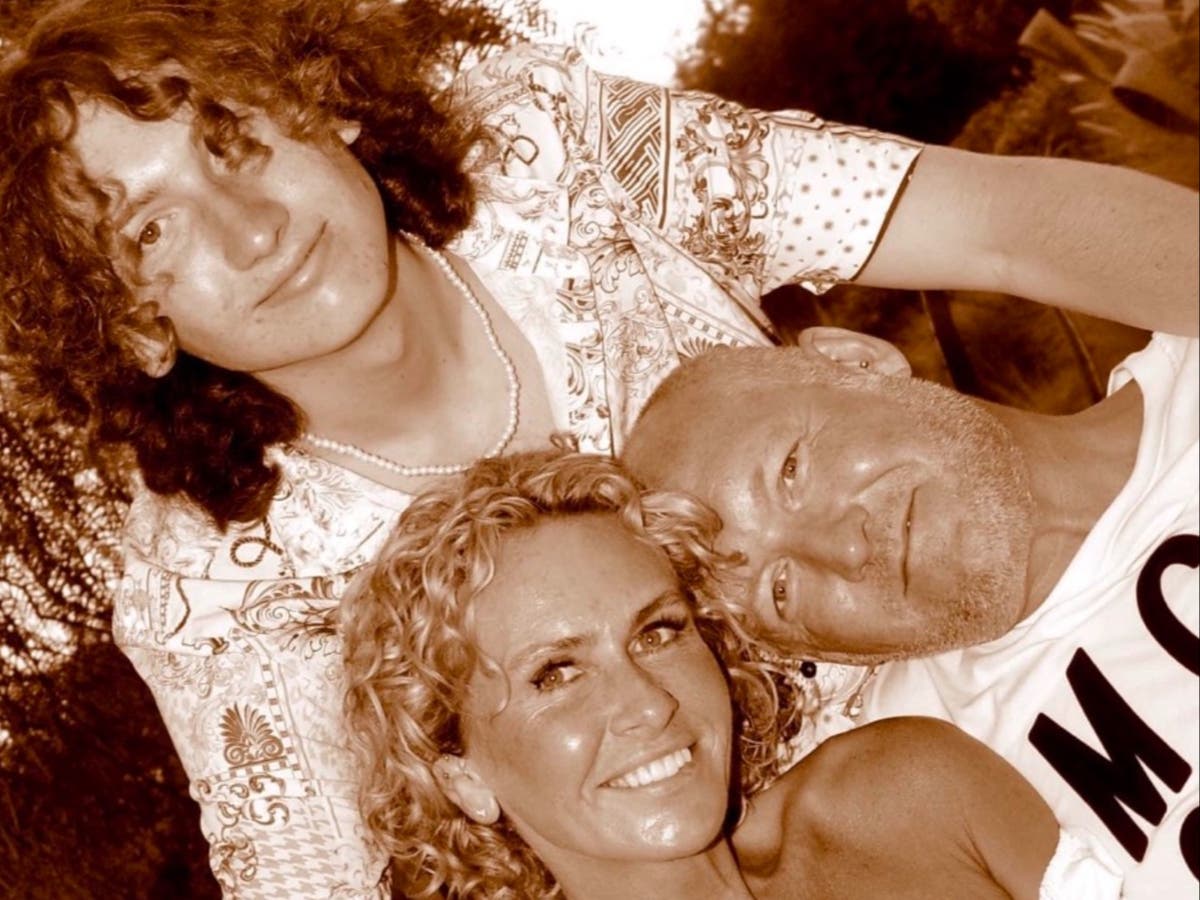It was Katie Constable’s 50th birthday when doctors delivered the life-changing news that her 17-year-old son Jack had a rare cancer – just months after he’d been told by a GP nurse that it was nothing but a pulled muscle.
“Jack had no symptoms whatsoever…he’s six foot three, he was slim,” his mother said. “He was a normal healthy lad. There weren’t any symptoms. ‘Then he said one day omg what is this lump I’ve got cancer.”
“We went to see a nurse practitioner. She lifted Jack’s shirt she didn’t even touch him or examine him and within two minutes we were out she said ‘oh it’s just a pulled muscle don’t do anything and if it doesn’t go down come back in eight weeks’. Then to be told he’s got cancer was just horrendous.”
Jack is one of the rising number of children and young people being diagnosed with cancer in the UK but experts warn the current NHS cancer targets are not adequate for the age group. This month new research revealed early onset bowel cancer in those aged 25 to 49 is increasing globally, but England is among the countries with the biggest rise, averaging a 3.6 per cent increase every year.
As figures such as Kate Middleton have shared stories this year of their cancer diagnosis awareness around the problem is growing.
However, NHS clinicians speaking with The Independent have said the sharp rise is worrying and will require the government to shift its approach to cancer diagnosis.

Inadequate targets
One major issue, according to the Childhood Cancer and Leukaemia Group, is that the current NHS target of diagnosing a patient within 28 days is not quick enough for young people and children in whom cancer grows more quickly.
Ashley Gamble, chief executive of CCLG told The Independent: “Target waiting times for cancer, they’re far too long for children, young people. It used to be the two-week wait, it’s now 28 days rapid diagnosis standard and a child, particularly with some cancers, that’s far too long and you need to move much more quickly.
“Targets designed around adult cancers are not suitable for children. They need dedicated targets that are more appropriate to the types of cancers that they get.”
The CCLG is currently working on a study that has found evidence cancer in children is taking longer to diagnose and that a higher rate of children are diagnosed in emergency departments, compared to adults. Emergency diagnosis usually occurs when a cancer is more advanced.
“There is a longer diagnosis period on average [for children]. It’s often [thought} it’s growing pains, or a sports injury, because it occurs in the age group where you’re likely to have these things. It’s more easily dismissed. So often we find anecdotally that it’s not taken seriously,” Mr Gamble said.
Misdiagnosis

A sports injury is exactly what Jack, now 18, was first told by his GP practice nurse when he first noticed a lump in 2023. His mother Katie, 51, remembered how the nurse came to this conclusion without examining Jack. However, having been reassured the family went on with their lives.
“I don’t blame the nurse practitioner because why would you think that lump was cancer we certainly didn’t, it didn’t cross our minds,” she said.
Eight weeks later, on November 14, the then 17-year-old’s tumour had grown to the size of a “watermelon” – so big it could be seen through his shirt. This time another nurse spotted the problem right away.
“Something didn’t feel right. In eight weeks, time I called and it was another nurse practitioner, who saw Jack, and as soon as she saw Jack said there’s no way that’s a pulled muscle.”
Following this, Jack was diagnosed with a Ewing sarcoma, which is a rare type of cancer that begins as a growth of cells in the bones and the soft tissue around the bones.
Even after his diagnosis Jack’s and his parents had hope and were told the tumours had a 90 per cent cure rate. Tragically Jack has now been told his cancer is terminal and his family’s only option is to seek life-extending treatment in the USA.
Katie and Jack’s father Jeremy, have launched a Gofund.me page in the hopes of raising the $50,000 to get Jack seen and treated by a specialist at the Cleaveland Clinic and to explore clinical trials.
Speaking with The Independent law clinical negligence firm Enable Law, warned they’re now seeing young people come forward regarding cancer misdiagnosis.
Associate at the firm Helena Henderson said: “Sadly in our work, we are seeing younger people come forward with complaints regarding their treatment, due to symptoms being missed or being falsely reassured when they do raise concerns. Healthcare providers need to urgently “stop making assumptions that someone is too young for cancer. They need to be alive to the risks and to really listen to concerns raised by their younger patients.”
Frustrated GPs
One problem according to the CCLC is that referral guidance published by the National Institute of Clinical Excellence, known as the “bible” for diagnosing cancer, does not take into account differing symptoms in children.
Rachel Kirby-Rider, Chief Executive at Young Lives vs Cancer, said: “At Young Lives vs Cancer, we know many children and young people we support experience a long journey to getting a diagnosis, with many young people feeling their symptoms were dismissed because of their age.”
She pointed to a recent survey by the charity Cancer52 in which a third of respondents under 25 had visited their GP three times or more before being referred and 40 per cent of children under the age of 16 had been diagnosed in an emergency setting.
The Children’s Cancer and Leukaemia Group (CCLG), and Young Lives vs Cancer are calling for the government to adopt our Children and Young People’s Cancer Plan, as part of the UK Government National Cancer Plan.
Although adjustments to referral pathways are needed GPs have also said they are “frustrated” over pressure on services which means they cannot spend the time they need diagnosing patients.
Professor Kamila Hawthorne, Chair of the Royal College of GPs, told The Independent: “It’s really worrying to see an increase in cancers amongst young people.”
She said GPs are currently doing a good job at making more urgent referrals and ensuring cancers are being diagnosed at an earlier stage than ever but warned, that diagnosing cancer in primary care can be challenging, especially in the case of younger age groups where symptoms can be vague or indicative of more common and less serious conditions.
However, she added regarding pressure on the service: “GPs are just as frustrated as our patients when we don’t have time for the longer conversations necessary to consider less likely diagnoses.”
Somerset ICB, the NHS commissioner responsible for French Weir GP practice said it could not comment due to patient confidentiality.
The Department of Health and Social Care said “Thousands of children and young people are waiting for too long for a cancer diagnosis and we are working to change that.”
The DHSC said it is due to set up a children and young people’s cancer taskforce.

